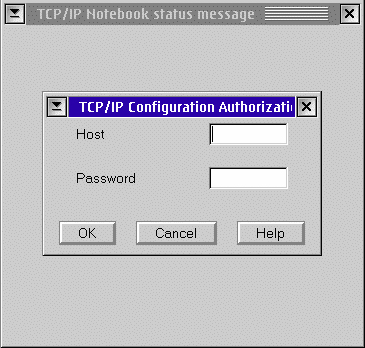
Background:
IBM made the optional TCP/IP v4.1 package freely available to the public for a few days, then withdrew it and made
it available only as an added-cost option. It is no longer available from IBM at any price, and has been supplanted by
the v4.3 package. Although it is possible to upgrade the W4 GA TCP/IP stack from 16-bit to 32-bit, adding the v4.1 or
higher package remains the only way to add the 32-bit applications.
TCP/IP v4.0 has its stack upgraded by upgrading MPTS in the 84xx series (8423, 8425, etc.).
The apps are upgraded via UN_0980 or higher. Find notes on these updates
here, but if you're installing TCP/IP v4.1 is is not
necessary to apply the MPTS 8423/8425 updates.
TCP/IP v4.1 has its stack upgraded by upgrading MPTS in the 86xx series (8610, 8621, etc.), and its apps are upgraded via UN_2001 and higher.
There are at least two ways to install TCP/IP v4.1 . If your system is at the TCP/IP v4.0 GA level, your MPTS will be at 84xx level (INETVER.exe will report v4.0x). If you try to install v4.1, the installer will force an update to MPTS 8600, using its included MPTS update (which INETVER.exe will report as 5.3008/5.3001/5.3006). My experience with this is that it creates a problem later, and I've been able to avoid this problem by first updating the MPTS level to 8610, then 8621, and then installing the TCP/IP v4.1 package. This latter method is the one I recommend and present here.
Prerequisites to installing TCP/IP v4.1
The installer requires:
Netscape Navigator (AFAIK; email me if this is incorrect);
IBM Feature Installer to work with Navigator;
Java
I recommend that you get these installed & updated before proceeding.
Netscape
Feature Installer
Java 1.1.8
| Shortcuts to sections in this page | |
Brings the TCP/IP stack up to 6.1002/6.1000/6.1001 (as reported by INETVER.exe).
This updates the stack, but not the applications (ftp.exe, ftpd.exe, telnet.exe, etc.)
Reboot, then delete the the files and dirs created by DSKXTRCT.
Additional instructions from README.tcp on the last diskette:
Unzip \TCPCOEX.ZIP, which has been DSKXTRCTed into the temp dir.
Delete existing x:\TCPIP\BIN\TCPCOEX.EXE file and then copy over the unzipped new TCPCOEX.exe .
[If you forget to do this before rebooting, then the new NSLOOKUP.exe in
x:\MPTN\BIN will get deleted by the old TCPCOEX.exe, and you'll have to manually
unpack and copy it (from the FIX\MPT.1 directory) to x:\MPTN\BIN again. The
old TCPCOEX.exe will continue to delete the new NSLOOKUP.exe at every boot, until you fix this.
Why the CSF doesn't do this for you is beyond me.]
Delete the old x:\TCPIP\BIN\NSLOOKUP.exe . It won't work with the new stack.
Reboot, then delete the the files and dirs created by DSKXTRCT.
Unzip it in a temp dir, keeping directories intact;
CD to the tcpip dir;
Make certain that all NS components are closed!
Run INSTALL.cmd
[If you've already updated MPTS to 8621, the installation will
proceed with a minimum of intervention. If you didn't, the installer
will tell you that you have to upgrade MPTS and will offer to do it. Don't
let it!. Quit the install and read why.]
Reboot, then delete the extracted TCP/IP v4.1 install files & directory.
Edit CONFIG.sys and remove "SET TMP=x:\TCPIP\TMP" .
Run the self-extracting archive in a temp dir. Follow
the instructions.
Then delete the extracted files from the temp directory.
Run the self-extracting archive in a temp dir. Copy
ftp.exe
ftpd.exe
to x:\TCPIP\BIN, replacing the old ones already there. No reboot is necessary.
Then delete the extracted files from the temp directory.
I've found sometimes that after upgrading to v4.1, when running the new Java TCP/IP configuration utility I'm prompted
for a Username & Password for a remote configuration, though I'm trying to modify the local configuration.

| Return to home. | ||
|
|
|
| Send mail to Al about this page. |
Last updated 30Apr2013
|